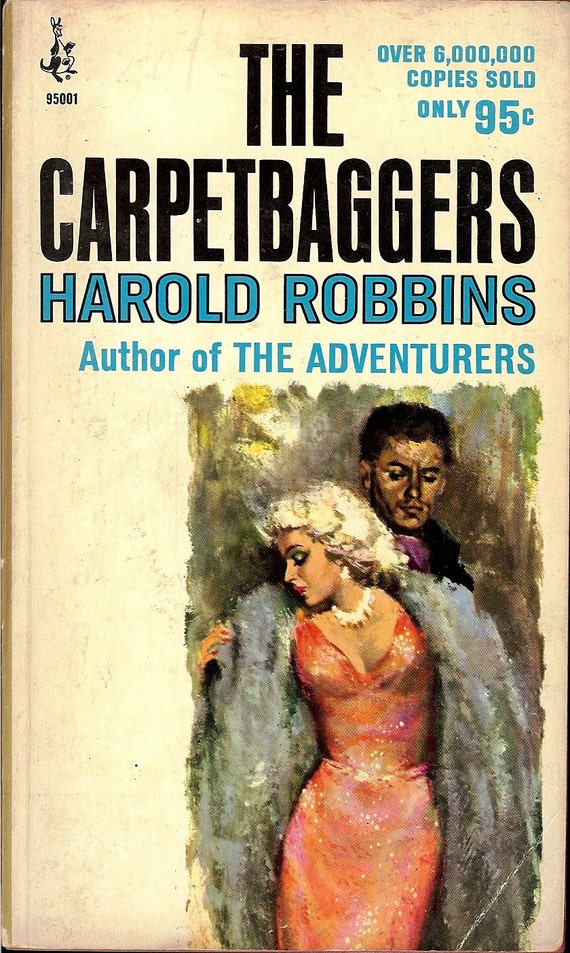

He ended up as an accountant at Universal Pictures, where he dodged World War II with a specious back injury, then climbed up to director of budget and planning while the GIs were away. “You never knew fact from fantasy with Harold, because some of the stories you didn’t believe were true, and some of the stories you did believe were true weren’t.” “The thing about Harold was that he wasn’t like anybody else,” says his longtime publicist, Gene Schwam.

None of it was true, except the Jewish Brooklyn family part (he was the product of his father’s extramarital affair). His first wife was a Chinese chorus girl at Billy Rose’s Diamond Horseshoe who’d died from a parrot bite. Before he was 21, he’d made and lost $2 million in sugar futures.

At 15 he ran away and joined the Navy, where his submarine was hit by a torpedo, he the lone survivor.
CARPETBAGGERS THE NOVEL MOVIE
His childhood exploits included fetching cigars for Lucky Luciano, delivering beer to a whorehouse and cocaine to Cole Porter, and jerking off men in movie theaters for money. His was that he was abandoned, placed on the steps of a Catholic orphanage in 1916, and adopted by a Jewish family named Rubin in Brooklyn. It all began - actually, who can really say where it all began? So much of Harold Robbins’ life was itself fiction, ingredients pulled from his imagination, plopped into a blender, then passed off as biography. “I don’t want to finish up like Harold Robbins,” Stephen King once said. If he is remembered at all, it is a cautionary tale: the man who amassed a $50 million fortune and burned through it all in a haze of sex, drugs and louche living.
CARPETBAGGERS THE NOVEL SERIES
One could argue that these kinds of series would not have been conceived without Harold Robbins’ influence on popular culture.”Īnd yet, 17 years after his death at age 81, Robbins has been largely forgotten. “It’s perhaps presented in a different way, but it’s that milieu, that narrative arc of secrets, the corrupting nature of power and wealth, sex, all of the elements. “ Mad Men is a very Harold Robbins kind of story,” says his biographer, Andrew Wilson. He crafted racy novels - sweeping literary cinemas bursting with beautiful, arrogant characters, rags-to-riches plots laced with betrayal, murder and passion - that readers gobbled up like printed popcorn, buying more than 750 million copies. He lived a life so big that two of his three wives wrote memoirs about what it was like to be along for the ride. He threw some of the most star-studded parties - and orgies - Hollywood had ever seen, their invites sought like a winning lottery ticket. Over the course of a half-century, Robbins became, in the words of British journalist Donald Zec, “the Onassis of supermarket literature,” or, in the slightly more ennobled phrasing of The New Yorker, “the dirty old man of American letters.” He owned a home in Beverly Hills, villas in the South of France and Mexico, a yacht on the Mediterranean - and ended up in a wheelchair, nearly penniless.


 0 kommentar(er)
0 kommentar(er)
